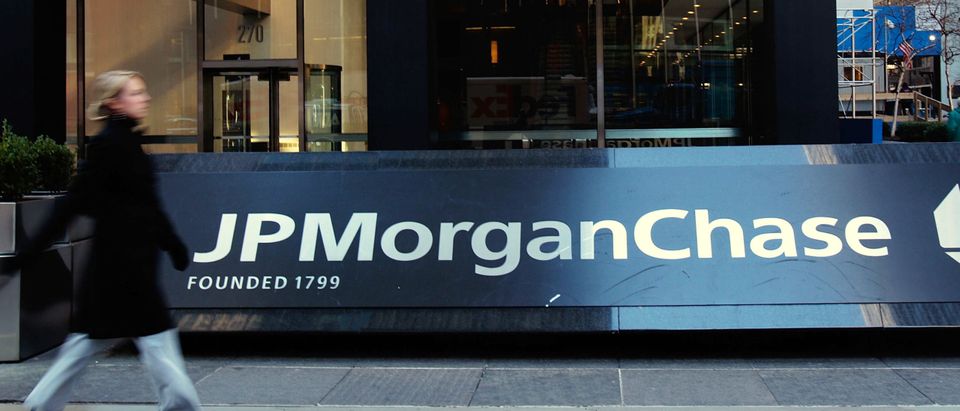Are the world’s leading financial institutions competing to see who can suppress speech in the most abusive and creative way? PayPal’s “$2,500 misinformation” and “intolerance” fines were a novel approach to corporate censorship. But JPMorgan Chase Bank might be giving PayPal a run for its money.
In one of October’s most alarming yet underreported stories, the nonprofit National Committee for Religious Freedom (NCRF) claims that Chase abruptly closed its new account with no explanation. It then demanded its donor list, a list of political candidates it intended to support, and a full explanation of their endorsement criteria before reconsidering.
Yes, you read that correctly. Wrong politics, no account. Won’t expose your supporters to additional threats to their own accounts? Forget about banking here.
Leaders of the nonpartisan, multi-faith 501(c)(4) organization were understandably stunned. Founder (and former Kansas U. S. Senator) Sam Brownback sent a letter to Chase CEO Jamie Dimon stating that no transactions in the account’s short three-week period of activity would have raised any regulatory red flags. Brownback asked, “Does Chase ask every customer what politicians they support and why before deciding whether or not to accept them as a customer? Are the same standards and scrutiny applied across the board to all non-profit organizations?”
A spokesperson for Chase told FOX Business, “Of course, I’m not able to speak about confidential client matters. But what I can say is we have never and would never exit a client relationship due to their political or religious affiliation.”
That’s good to hear, but hard to believe considering the bank’s absurd request. Chase’s apparent stonewalling of NCRF leaders’ queries doesn’t paint the bank in a favorable light, either.
It’s not impossible to imagine that Chase has a legitimate reason for shutting down the NCRF account. But if there is one, it doesn’t make sense that a donor list and a political survey would remedy any potential concern.
Given the political climate, it’s reasonable to be suspicious about Chase’s motivation. Mega-corporations have regularly abused their power to silence and intimidate those with different political views. Financial companies PayPal, Venmo, and GoFundMe have together deplatformed and seized the funds of anti-war journalists, booted a group that “opposes the sexualization and indoctrination of children,” and threatened to steal over $9,000,000 raised for Canadian “Freedom Convoy” truckers to give to groups of their own choosing. Might Chase be the first major bank to punish customers with whom they disagree?
Chase’s targeting of a nonprofit organization that spends only part of its time and resources on electoral politics is of real concern. The Supreme Court has recognized that the First Amendment protects Americans anonymity in supporting causes they care about. That anonymity is important to protect donors from the intimidation and harassment when giving to controversial causes. And while banks are not government actors, all nonprofits should fear new requirements for private donor information. As we have seen at government bureaucracies, it only takes one rogue employee with a grudge to publicly reveal reams of sensitive information. Banks, likewise, should realize these risks and respect the strong culture of free expression and tolerance that allowed them to thrive in the United States in the first place.
Without more information, it sure looks like NCRF is being targeted for its views. We should all be concerned by a world in which every company is deciding whether your speech is acceptable before doing business. Put simply, your bank should never pry into your politics. When you go into the voting booth, no one but you knows who you vote for. When you step up to the teller at your bank, the same rules should apply.
Tiffany Donnelly is the Media Manager at the Washington D.C.-based Institute for Free Speech
The views and opinions expressed in this commentary are those of the author and do not reflect the official position of the Daily Caller.


